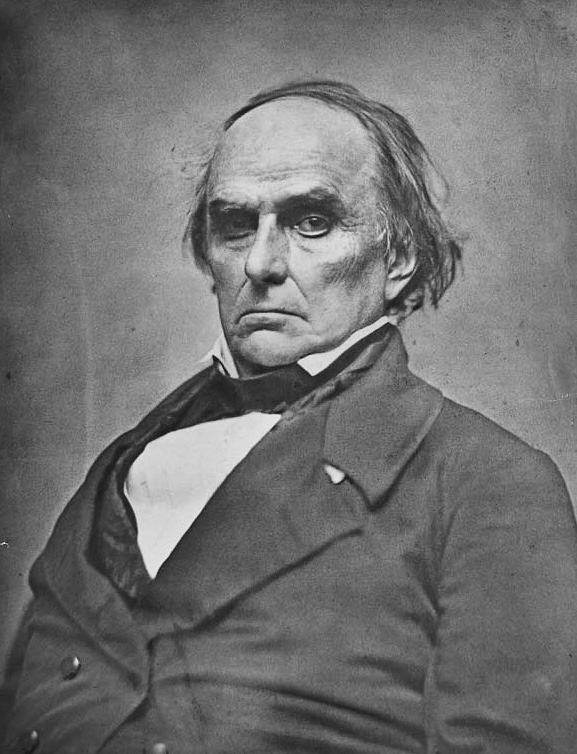Daniel Webster was born on January 18, 1782, in Salisbury, New Hampshire. Throughout his remarkable life, he became one of the most influential figures in American history. Renowned for his mastery of language and unwavering defense of the Constitution, Webster’s legacy as a statesman, lawyer, and orator continues to endure to this day.
Interesting Facts:
- Born into a farming family, Webster grew up in modest circumstances.
- From a young age, Webster displayed a remarkable aptitude for learning, a trait that his family recognized and prioritized despite financial challenges. This early determination set the stage for his future success.
- Webster graduated from Dartmouth College in 1801, showcasing a talent for public speaking that would define his career.
- After studying law, Webster was admitted to the bar in 1805 and established a successful legal practice.
- Webster’s legal arguments in key Supreme Court cases, such as Dartmouth College v. Woodward (1819) and McCulloch v. Maryland (1819), were not just successful, they were influential. They helped shape constitutional law, a testament to his legal prowess and influence.
- Webster entered politics as a Federalist, later aligning with the Whig Party. He served in the U.S. House of Representatives, the Senate, and as Secretary of State.
- Webster’s fame was not just for his political career but also for his eloquence and persuasive speeches. His ability to captivate audiences with his oratory skills was a defining feature of his career.
- His 1830 speech defending the Union, known as the ‘Second Reply to Hayne,’ responded to Senator Robert Hayne’s argument for states’ rights. Webster’s impassioned defense of the Union and the Constitution in this speech became a defining moment in American rhetoric.
- Webster advocated for economic policies that strengthened infrastructure, such as constructing roads and canals, and promoted industrial growth. He believed that these measures would help unify the nation and boost its economic prosperity.
- He played a vital role in shaping U.S. foreign policy during his tenure as Secretary of State, including negotiating the Webster-Ashburton Treaty (1842), which settled a boundary dispute with Britain.
- His support for the Compromise of 1850 aimed to preserve the Union but cost him political support among abolitionists.
Webster’s contributions cemented his reputation as one of the greatest politicians of his time. While he never achieved his dream of becoming president, his influence on American law, politics, and public discourse is undeniable. He is remembered as a defender of the Constitution and an advocate for the unity of the United States.

